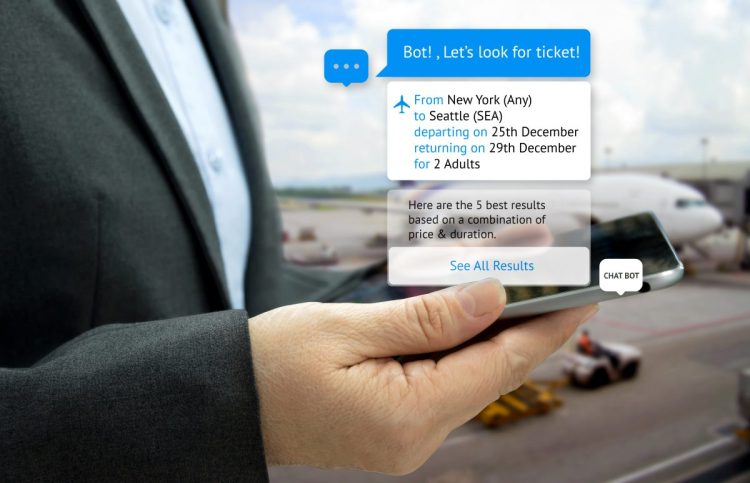Watch all the Transform 2020 sessions on-demand here.
I recently had a very interesting conversation with an air passenger whose flight had been delayed 12 hours by the “Beast from the East,” a cold snap that was sweeping across Europe at the time, bringing some countries to a frozen standstill.
During his long delay, the disgruntled flyer had heard nothing from his airline, nor had he been able to reach them through any of their communication channels. He even tried tweeting them. Knowing what I do for a living, he ended his tale with the question, “If they had artificial intelligence, would this fix their customer service?”
The question illustrated how people often see artificial intelligence as a magical answer to all woes.
This was particularly evident at Mobile World Congress 2018 in Barcelona last month, where artificial intelligence was one of the hot topics, with companies using the AI buzzword for everything from handsets that help you take better selfies to sat-nav that tells you where you want to go before even you know yourself. Whether all these innovations were truly powered by artificial intelligence or just rigid algorithms is debatable, however, one thing was clear – the world is high on AI.
June 5th: The AI Audit in NYC
Join us next week in NYC to engage with top executive leaders, delving into strategies for auditing AI models to ensure fairness, optimal performance, and ethical compliance across diverse organizations. Secure your attendance for this exclusive invite-only event.
In fact, artificial intelligence now sits on such a lofty pedestal that people are talking about how it could cure cancer. Let’s hope that one day it will, but we are a long way from there. You see, the answer to the air passenger’s question was simply “no.” If a company doesn’t value its customers, then it doesn’t matter how much technology they throw at customer service — it won’t get better.
First, you have to change the culture of the company to become customer-centric. And that airline needs to act quickly. For example, a study by digital agency Wunderman found that 79 percent of consumers said brands must demonstrate they understand and care about them before they will consider a purchase.
Equally, according to a study by Accenture, when customers are unhappy, they act much more quickly. It found that half stopped doing business with a company immediately after a bad sales or marketing experience.
Digital customer engagement products powered by artificial intelligence are increasingly becoming key tools for enterprises such as telecom operators, banks, or airlines to improve their customer experience. However, before they can do so, a human must define the outcome — good customer service — and also ensure that AI has necessary data and resources to achieve it.
So, in the case of the stuck air passenger, AI might be able to decide what updates the person needs, when, and via which channel and so on based on data. It may even notice a plane has been delayed and decide the best course of action would be to contact passengers. However, the fundamental prerequisite is the human decision that creating personal engagement with customers is good business. Those behind the AI need to understand what constitutes good customer service, then use AI to personalize and scale.
When explaining this concept, I often use an example of a mom-and-pop grocery store. Here, the store owners know what their customers want because they have learned their behaviors through repeated business. They can predict that one customer comes in to buy eggs on Tuesdays, another always purchases a pie for supper, and another prefers one type of soda to another. This allows them to provide exceptional service and alert those patrons when they are running a special on their favorite items. And, of course, they understand that people keep coming back to them because they get this personalized experience. It makes their shopping experience easier and more enjoyable.
The principle is the same for artificial intelligence-driven customer engagement. The difference is that while a mom-and-pop store might be able to sustain that level of customer service for a few dozen customers, an AI-powered product can sustain it for 200 million or more.
That is a hugely attractive proposition. But beware: While artificial intelligence can deliver better customer engagement and, ultimately, better profits, it cannot make up for a company not being customer-focused. That’s a human problem, not a technology one.
Dr. Vinod Vasudevan is the CEO of Flytxt, a customer data analytics software product company.


